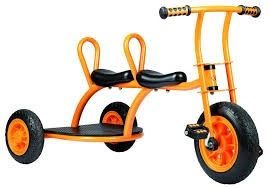 While we may imagine that vehicle running costs are mainly measured at the petrol pump, in fact the substantial costs are the climate impacts from us burning carbon which are cumulative. The leading global science collaboration called the Intergovernmental Panel on Climate Change regularly updates us on the likely catastrophic impacts of climate change from human activities, particularly from burning carbon. These experts urge immediate action.Our NZ scoreboard on private car use is alarming.
While we may imagine that vehicle running costs are mainly measured at the petrol pump, in fact the substantial costs are the climate impacts from us burning carbon which are cumulative. The leading global science collaboration called the Intergovernmental Panel on Climate Change regularly updates us on the likely catastrophic impacts of climate change from human activities, particularly from burning carbon. These experts urge immediate action.Our NZ scoreboard on private car use is alarming.
Household transport emissions increased by 2 percent in 2021 (most recent figures here).
Between 1990 and 2017, New Zealand’s gross greenhouse gas emissions increased by 23.1% while emissions from the road transport sector increased by 82%. Ref.here
A recent Waka Kotahi (NZTA) report (here) states:
- The driver was the sole vehicle occupant in two-thirds (68%) of trip legs in cars, vans and utes.
- On average, New Zealand adults now spend four and three-quarter hours a week driving, compared with less than four hours 20 years ago.
- One-sixth of household car trips (trip chains) in New Zealand are under 2km long and almost half are less than 6km long.
Short distance car trips are particularly polluting, as cold engines consume around 40% more fuel, produce more emissions and increase engine wear and tear.
What can we do today to burn less carbon?
Delaying a car journey, travelling with others and travelling less often are all remarkably helpful.
Oxford University’s Christian Brand says: “A typical response to the climate crisis is to ‘do something’, such as planting more trees, or switching to electric vehicles. While these are important and effective, they are neither sufficient nor fast enough to meet our ambitious climate targets“.
“Doing more of a good thing combined with doing less of a bad thing — and doing it now — is much more compliant with a ‘net zero’ pathway and preserving our planet’s and our own futures. Switching from car to active mobility is one thing to do, which would make a real difference, and we show here how good this can be in cities.”
https://www.sciencedaily.com/releases/2021/02/210208104624.htm;
Is commuting or shopping by bike feasible?
In Aotearoa’s cities, commuting by bike, scooter, and even skates is becoming more popular. A Wellington City Council survey found that 76% of city commuters said they would use a bike if they could use safe bike lanes (other article here.
The Energy Efficiency and Conservation Authority’s Jo Bye says “If every New Zealand household switched their car for a climate-friendly mode of transport for two trips a week (two kilometre average), every week, we could save around 100,000 tonnes of carbon dioxide emissions each year.” https://genless.govt.nz/stories/say-no-to-short-car-trips/;
Consider cycling as a lifestyle option
A multi-city study with thousands of participants providing nearly 10,000 valid person-days of travel activity, found highly significant associations between transport mode choice and total life cycle CO2emissions. Commuting, education and business travel emissions represented ‘only’ about half (49%) of total CO2 emissions, ranging from 39% in Antwerp to 59% in London and Rome.
More cycling or walking decreased mobility-related life cycle CO2 emissions. The analysis showed that each additional cycling trip reduced life cycle CO2 emissions from all travel activity by about 14% when compared to baseline emissions.
On average, those who did one less trip by car and one more by bike or public transport decreased emissions by 67% and 19% respectively.
See The climate change mitigation effects of daily active travel in cities – ScienceDirect
Try the buses!
Tasman District Council and Nelson City Council have jointly announced that from July 2023:
“More frequent, more environmentally friendly, and more widespread is the promise of a new contract awarded to local operator Nelson Coachlines SBL to deliver Nelson-Tasman’s bus service for the next nine years.” See here.
Auckland Council’s community climate action team manager Lucy Hawcroft says : “We’re pretty adaptable. When plastic bags were banned from supermarkets, it only took most people a few weeks to get used to using their own bags. If it was easier to walk and cycle and take public transport in Auckland, people would soon get used to doing it, and probably be healthier and happier because they’re spending less time sitting in traffic. A lot of the countries overseas that have the highest quality of life ratings are those that have great urban design and public transport systems.” Ref. here.
Here in Nelson Tasman region we can also support the services provided by the local transport trust. More informatin about the Trust here.
What else?
What other personal actions will we take to stop our transport carbon emissions?
